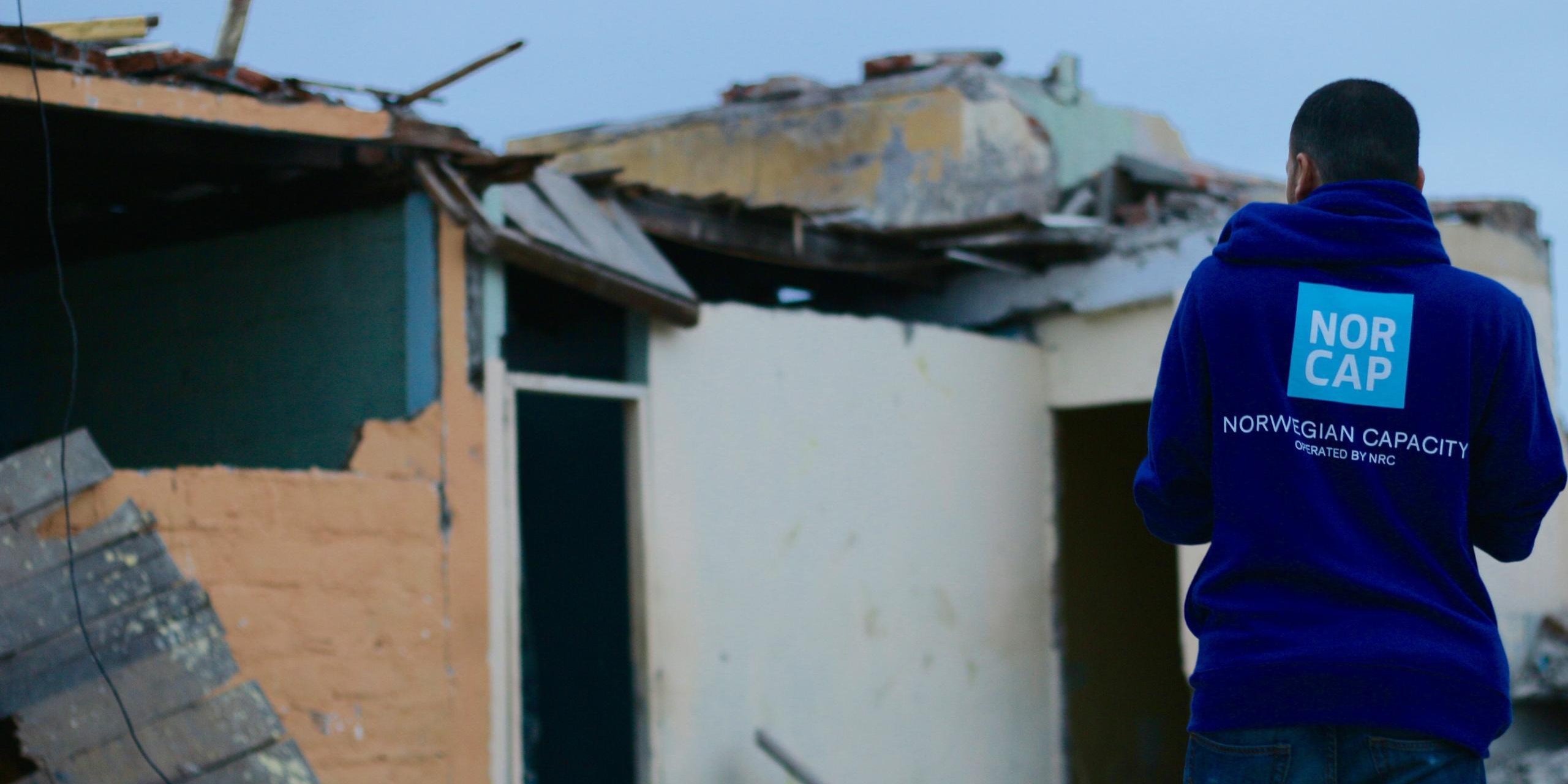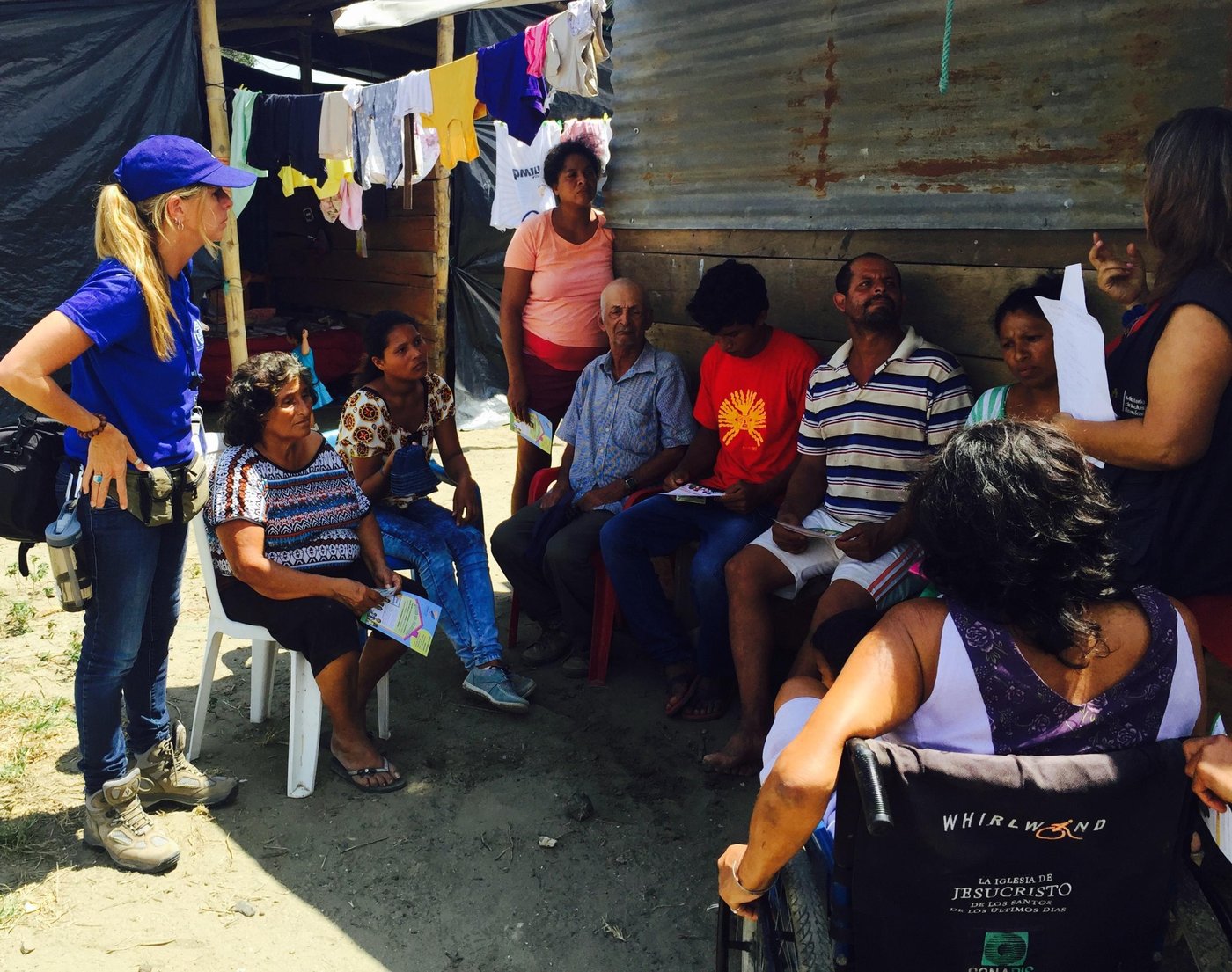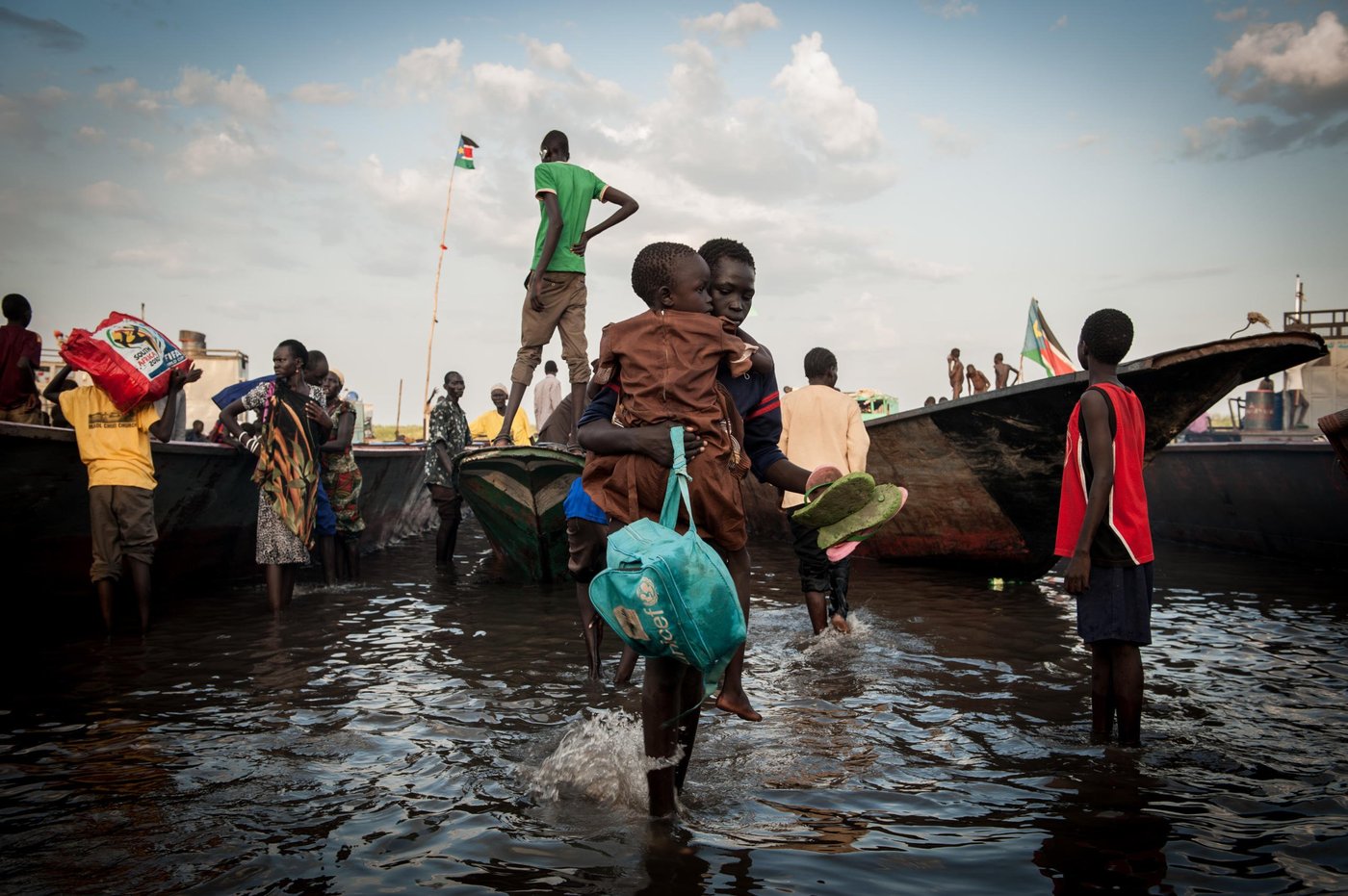
The 7.8 magnitude earthquake on 16th April killed over 600 people, injured more than 4600 and left 350,000 people in need of assistance.
Mario Calderon works with disaster risk reduction in education in the regional emergency unit of UNICEF and is normally deployed in Panama. When the earthquake hit, he was sent to Ecuador to help his UNICEF colleagues there respond to the emergency.
“We started working in the middle of the chaos and stress of the national authorities and the UNICEF local staff. In addition to supporting my colleagues in establishing the education cluster, meetings with the UN, national authorities and national partners, we also did a needs assessments of the areas affected by the earthquake and designed a funding proposal in coordination with the UN Office for Coordination of Humanitarian Affairs”, says Calderon.
He also helped set up agreements and the field operations with local organisations that could implement UNICEF’s emergency response in sectors such as water, sanitation and hygiene, education and protection and coordinated the technical and security sectors during the mission.

Information is aid
NORCAP received several requests for experts to Ecuador in the aftermath of the earthquake and has worked extensively to provide Spanish-speaking expertise for these missions. One of the deployed experts is Fernanda Baumhardt, who is deployed to the International Organisation for Migration to work with communication with communities.
This has been especially important because of the large number of people who have been displaced from their homes and their need for clear information when moving from one settlement to another.
"After the quake, a lot of spontaneous camps appeared. The authorities wanted to relocate most of these settlements to official camps, but many of the affected have been reluctant to go due to lack of information on their current situation and options of future housing arrangements”, Baumhardt explains.
A couple of months after the earthquake, the Ecuadorian Government asked the International Organisation for Migration (IOM), along with the UN Office for Coordination of Humanitarian Affairs, to lead an inter-agency evaluation of six camps in Esmeraldas province. For the first time, focus groups were included, aimed at listening to affected populations inside camps.
“It was a challenging process for community members to speak out as often we had the presence of a government representative, and they may not feel comfortable to open up. However, it is important to remember that government institutions are doing their best to respond to such sizable disaster. I think working "with" a country, should be a synonym of "more understanding" the difficulties faced, and "less criticizing" what is still work in progress, she says.

Wide range of expertise
NORCAP has also provided assistance in the fields of shelter and camp coordination and camp management. One shelter expert was deployed to the affected areas shortly after the earthquake and helped set up the relevant cluster team and a shelter sector strategy for response and recovery. She also assisted the government in their housing reconstruction policy and implementation.
Another expert has trained government actors in camp coordination and camp management and monitored the resettlement of displaced populations from spontaneous camps to official camps, with a particular focus on vulnerable groups. In order to ease the recovery and reconstruction, the deployee has contributed to a coordinated strategy between shelter and camp actors and helped combine funds for debris removal and construction of transitional shelters.
A cash and markets expert from the CashCap roster is working with the government to ensure cash is used in the response to alleviate the negative impact of the earthquake on the affected population.
Given the critical need to ensure gender equality in the response, a GenCap expert has provided technical guidance and support to make sure gender equality and gender-based violence are included as central parts of the humanitarian response.

South Sudan
10 NORCAP experts are currently deployed to support the government and various UN organisations working in South Sudan. Almost 1,7 million people are internally displaced and 6,1 million are in need of humanitarian assistance. The economic situation has deteriorated drastically, with falling oil prices and increasing inflation. Access to people in need of humanitarian assistance remains a challenge, due to flooding as well as the spreading of conflict outside the Greater Upper Nile region.
NORCAP provides support in areas such as protection, child protection, camp coordination and camp management, disaster risk management, hydrology, education and human resources. We have deployed a security expert to the Joint Monitoring and Evaluation Commission (JMEC), a body set up to oversee the implementation of the peace agreement.
El Niño
The impact of El Niño-related droughts and floods, coupled with unstable weather patterns due to climate change, will exacerbate humanitarian needs in many countries for months to come. In Southern Africa, 32 million people are currently food insecure, however this could double by the end of the year.
More than 60 million people have been impacted by El Niño, despite it being difficult to pinpoint an exact number. Drought due to failing rains and extreme weather leading to floods have occurred in many parts of the world, with East and Southern Africa, the Pacific Islands, South East Asia and Central America being the worst affected.
Changing weather patterns have led to increased food insecurity, because of damaged or wiped out crops, rising food prices and devastated livelihoods. Flash floods and excessive rain have also resulted in outbreaks of waterborne diseases such as cholera and typhoid.
The El Niño response has generated more than 60 requests for NORCAP experts so far this year. At the moment 11 experts are deployed to countries such as Ethiopia, Malawi, Zimbabwe, Papua New Guinea, Fiji, Vanuatu and the Philippines.
Myanmar
Protracted armed conflict between ethnic groups and the government continues to keep over 500,000 people in need of assistance in Myanmar. In addition the country is one of the most disaster prone in Asia. Flooding and landslides from June to November 2015 affected nearly 1.7 million people. Up to 9000 remain displaced and damage to agriculture will continue to impact livelihoods and food security in 2016.
NORCAP currently has two experts working in Myanmar, on shelter and gender mainstreaming. The shelter cluster coordinator in Kachin state works to build capacity of cluster partners to assist affected populations within the areas of shelter, non-food items and camp coordination and camp management
NORCAP also works with the Food and Agriculture Organization of the United Nations (FAO) to deploy several food security experts. They are recruited to long term positions in Myanmar to respond to the high number of people in need of food assistance.

